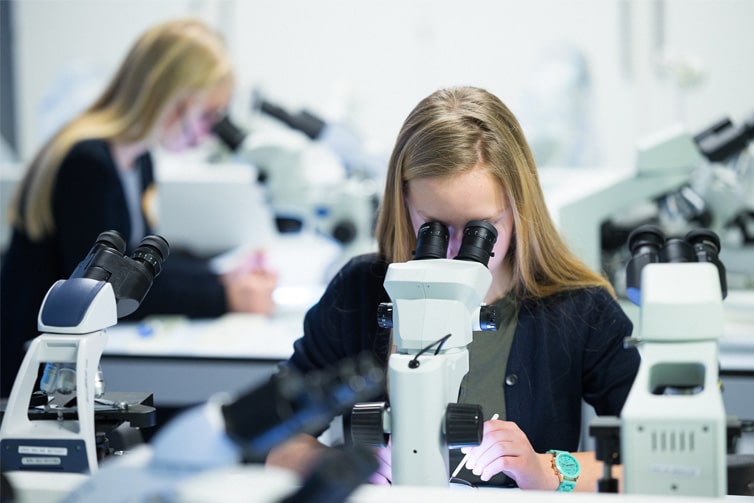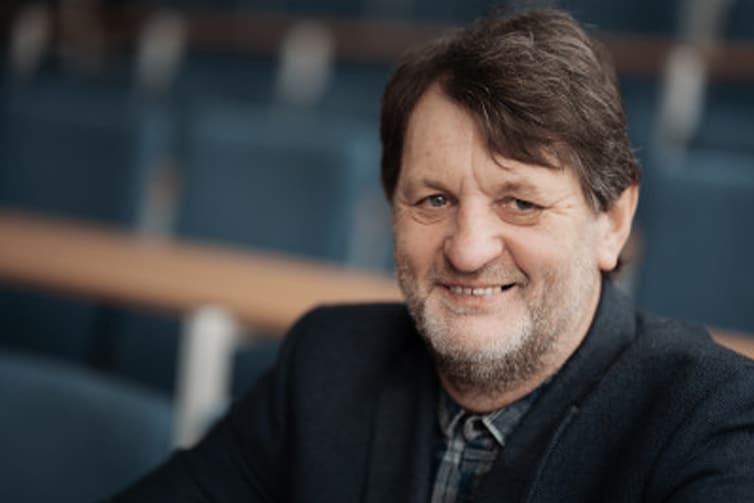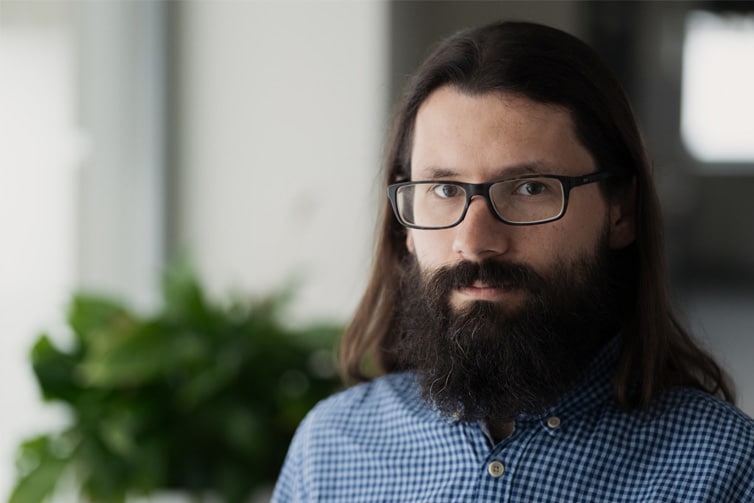We're moving! This site will be relocating to goingto.university in 2026. Please update your bookmarks to the new address.

Bioinformatics is a modern and dynamic field that integrates biology, informatics, and mathematics. It not only opens opportunities to work with large biological data but also provides tools to develop new drugs and vaccines and contribute to the global progress of biotechnology. In Lithuania, bioinformatics studies are highly valued, as they not only prepare students to work in various industries but also open doors to scientific careers.

At the Faculty of Mathematics and Informatics of Vilnius University (VU MIF), bioinformatics studies provide students with a broad knowledge base. They analyse biological processes, create computational models, and apply IT solutions for processing biological data. During their studies, students gain knowledge in gene therapy, treatment of dangerous diseases, protein structure prediction, and many other important areas that directly contribute to the development of biomedicine and biotechnology.
As stated by the VU MIF bioinformatics Study Committee chairman, associate professor Dr Gintautas Bareikis, bioinformatics is the future that is already coming into our daily lives. “For those who want to work with large data, create computational models for biological processes, and contribute to scientific progress, bioinformatics is an excellent choice,” he says.

One example of success from this programme is Dr Andrius Merkys, a senior researcher at the Institute of Biotechnology of the Life Sciences Center of Vilnius University. Andrius began working in his second year and quickly realised that a career in science was what he wanted to do. His work includes research, writing articles, and teaching students. Bioinformatics studies provide a unique combination of skills and knowledge, allowing one to work with both biological data and IT solutions. Working in this field enables people to contribute to scientific breakthroughs and solve real-world problems. “These studies offer great opportunities,” says A. Merkys without hesitation.
Andrius is also involved in the development and improvement of the Crystallography Open Database (COD). What is it? The COD is a creation of the global community, and anyone can contribute and use its data. The database has a search function with many parameters, but users can also download all the records from the COD and perform searches and reviews on their own computers or use special software tools for working with crystallographic data. The main areas of data use are materials science and drug discovery. A. Merkys began working on this impressive project while still studying.

Another inspiring example is the story of Ieva Pudžiuvelytė. The girl from Mažeikiai graduated Magna Cum Laude in Bioinformatics. Ieva was not only an excellent student, but also, from the first year, with the guidance of Professor G. Bareikis, got involved in active scientific and community activities. After much self-reflection, she decided to study bioinformatics and realised that this field beautifully merges different areas that she was interested in: mathematics, IT and life sciences. Her participation in the VU “Young Mathematicians’ School” influenced this decision: “I realised that the tasks in the ‘Young Mathematicians’ School’ made me see mathematics from a different angle and even fall in love with it,” says I. Pudžiuvelytė. She is happy that the studies not only met her expectations but also gave her the opportunity to contribute to solutions that can bring real benefits to biomedicine.
For those considering bioinformatics studies, Ieva advises that students in this programme are primarily prepared to engage in scientific work: analysing scientific literature, formulating hypotheses, performing necessary analyses in biological sciences, and creating software tools. She recommends bioinformatics studies to those who want to apply their skills in mathematics and programming while contributing to the progress of biomedicine or life sciences.

The field of bioinformatics is expanding rapidly not only in Lithuania, but worldwide. More and more biotechnology and biomedicine companies are looking for qualified professionals with expertise in both informatics and biology. Graduates of this programme can work in IT and data analysis companies, research institutions, pharmaceutical and biotechnology companies, as well as healthcare institutions and medical centres.
Bioinformatics studies provide an opportunity not only to gain valuable knowledge but also to contribute to the progress of life sciences. The experiences of graduates of this programme show how these studies can open doors to successful careers in Lithuania and worldwide.
Learn more about Vilnius UniversityThe latest articles from study abroad providers and StudyLink.com to hep you on your study abroad journey.
See more articlesRead our key advice article to help you make the best decision for your education and start your International study adventure.

In this article we look at how to approach choosing where in the world you would like to study.

Read StudyLink's suggestions on your first steps when deciding where to study abroad, with helpful tips to make your decision easier.

Find out more about English language tests, your options and what is required as an overseas student.

StudyLink.com take a detailed look into the costs of studying abroad and all the aspects that you should budget for when embarking on your studies.

We answer 10 common questions about applying for a student visa to help make your visa application quick and easy.

Find out more about international student visas for studying abroad, as well as how, where and when to apply for yours.

Find out more about funding and scholarships for international students, and what financial assistance might be available to you.

How to choose a course that fits you? Check our top tips on choosing which course is best for you to help you make an informed decision.
Join the StudyLink email list and never miss a chance to turn your study abroad dreams into reality!
